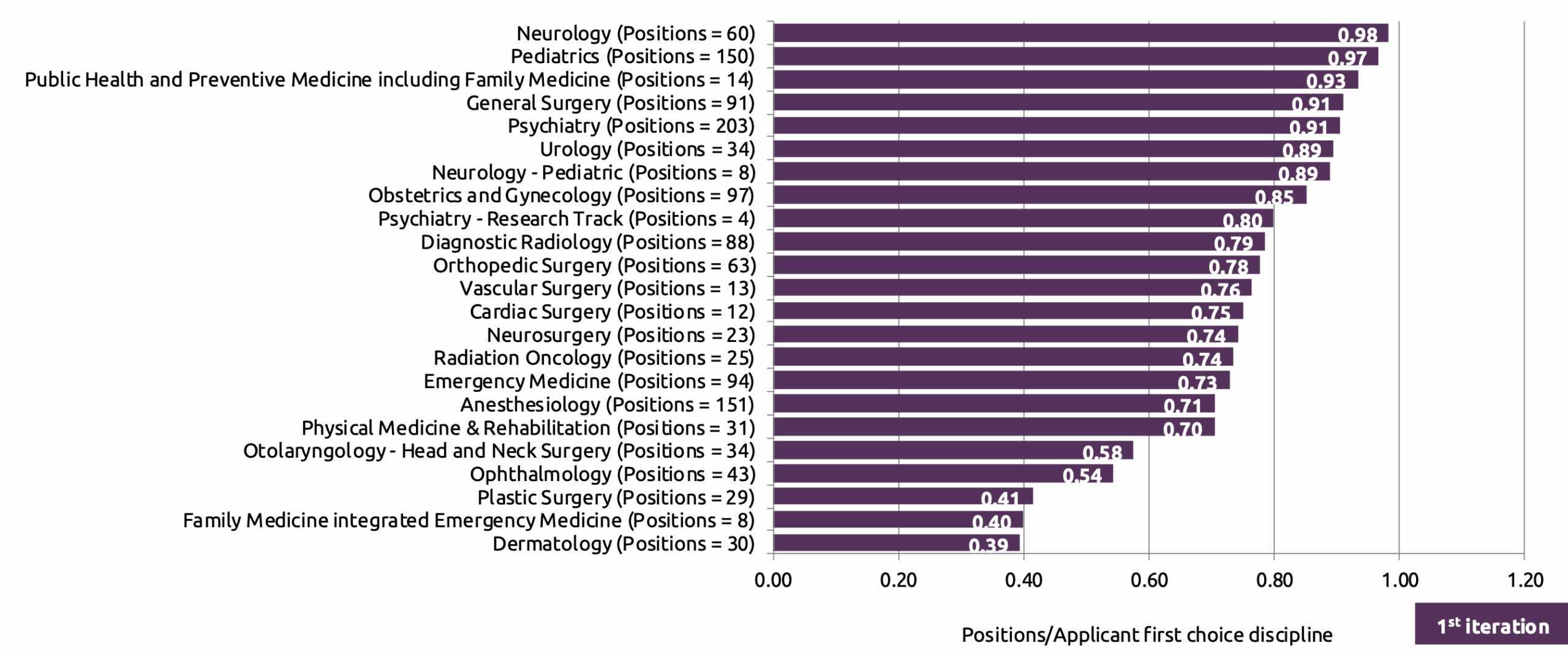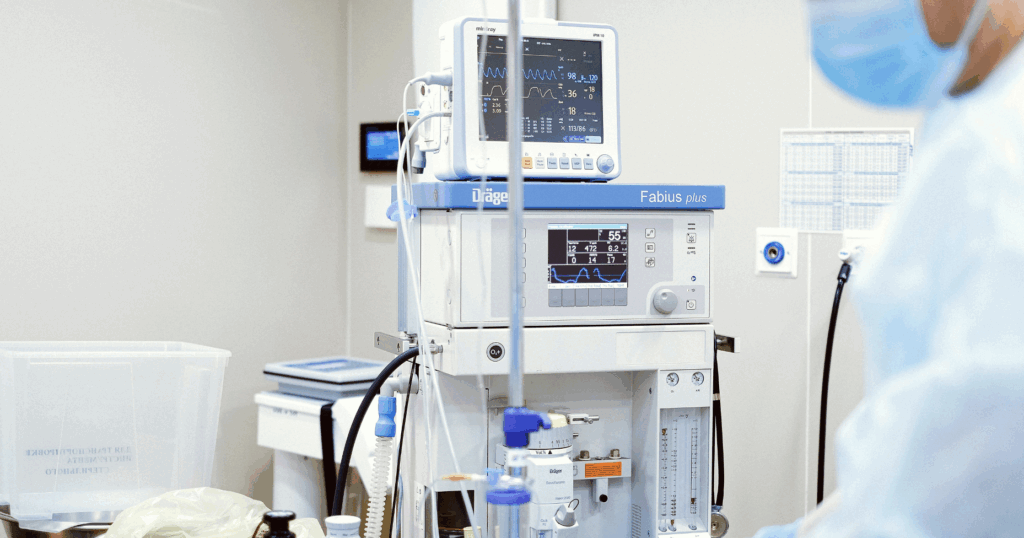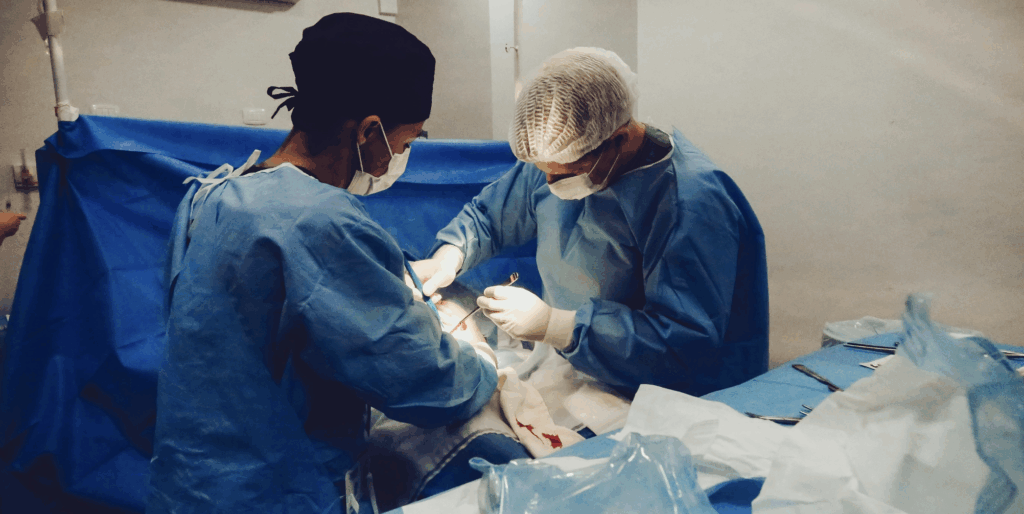For many medical students in Canada, choosing a specialty is one of the most defining moments of their careers. It’s a decision that blends personal values, professional goals, and no small amount of strategy. In certain specialties, however, the stakes are even higher. Demand far exceeds supply, and the journey to a successful match demands not only meticulous preparation and resilience, but also a measure of luck.
In this post, we’ll dive into the most competitive medical specialties in Canada, and what makes them so appealing, why they’re so difficult to get into, and what aspiring applicants can do to increase their chances of success.
Explore the best medical student apps that can help you ace exams and manage your busy schedule.
What Makes a Specialty Competitive?
Before we look at specific specialties, it’s helpful to understand the factors that drive competition. In the Canadian residency match (CaRMS), some programs consistently receive far more applications than available spots. But numbers alone don’t tell the whole story. A few common themes tend to influence a specialty’s competitiveness:
- Limited Residency Positions: Some specialties simply don’t have many training spots available, which naturally increases competition.
- Perceived Prestige and Salary: Specialties with high status or strong earning potential tend to draw more applicants.
- Lifestyle Considerations: Fields that offer more predictable hours or a better work-life balance are in high demand.
- Skill and Personality Fit: Some specialties attract students who have specific aptitudes or personalities that align with the field’s demands.

Disclaimer: Specialty competitiveness and average physician salaries can fluctuate yearly and by region. This overview highlights general trends and should not be considered definitive. For the latest data, refer to the annual match data posted by CaRMs.
With that in mind, let’s take a closer look at the specialties that are considered the toughest to match into in Canada.
The Most Competitive Medical Specialties
1. Plastic Surgery
Plastic surgery is a specialty known for its blend of reconstructive and aesthetic procedures. This specialty demands exceptional technical skills and a creative mindset to tackle often complex challenges that come with reshaping and restoring the human body.
Average Salary: $400,000–$600,000+ (significantly higher in private practice).
Why It’s Competitive: The high level of skill required, combined with the prestige and potential for a lucrative private practice, makes it highly desirable.
Challenges: Matching into plastic surgery requires exceptional clinical and surgical evaluations, a robust research background, and a demonstrated commitment to the specialty through electives and extracurricular activities.

2. Dermatology
Dermatology is consistently one of the most competitive specialties in Canada. The allure lies in its mix of procedural work, outpatient care, and a relatively controllable lifestyle. Dermatologists diagnose and treat a wide range of skin conditions, from cosmetic concerns to life-threatening cancers, with procedural opportunities including biopsies, excisions, and cosmetic treatments.
Average Salary: $350,000–$500,000+.
Why It’s Competitive: There are very few residency positions in dermatology each year, leading to a high applicant-to-position ratio. Additionally, the specialty attracts students with top academic records and extensive research experience.
Challenges: Applicants often need strong research portfolios, glowing reference letters, and evidence of a long-standing interest in dermatology to stand out.
3. Ophthalmology
Ophthalmology is one of the most sought-after specialties in Canada. With a combination of hands-on procedures, outpatient care, and a balanced lifestyle with excellent compensation, it offers both variety and flexibility. Ophthalmologists diagnose and treat a wide range of eye conditions, from common refractive issues to serious diseases like glaucoma and macular degeneration, with procedures that include surgeries, laser treatments, and vision correction.
Average Salary: $300,000–$500,000+.
Why It’s Competitive: The specialty’s controllable hours, ability to improve patients’ quality of life, and opportunities for private practice make it appealing. Residency positions are limited, which intensifies competition.
Challenges: Candidates need to excel academically, perform well on electives, and often complete research in the field to strengthen their applications.

4. Diagnostic Radiology
Radiology is one of the most dynamic and evolving specialties in Canada. Radiologists play a crucial role in diagnosing and guiding treatment for a wide range of conditions, from broken bones to complex cancers, all through imaging. Whether it’s interpreting CT scans, MRIs, or ultrasounds, radiology offers a mix of intellectual challenge and cutting-edge technology, along with the option for a flexible work-life balance and sub-specialization into more procedural radiology fields.
Average Salary: $350,000–$550,000+.
Why It’s Competitive: The field offers a high degree of intellectual challenge, relatively flexible hours, and the opportunity for a comfortable work-life balance. The limited number of residency spots heightens competition.
Challenges: Strong academic performance, a proven interest in radiology, and research experience are essential to securing a spot.
5. Anesthesiology
Anesthesiologists are responsible for managing pain and ensuring patient safety during surgeries and procedures, using a mix of medications and techniques tailored to each individual. With its blend of critical thinking, patient interaction, and hands-on work, anesthesiology offers a unique balance of excitement and stability, along with flexible hours and a strong demand for expertise.
Average Salary: $300,000–$450,000+
Why It’s Competitive: The field offers a mix of high-stakes medical care, procedural expertise, and opportunities for subspecialization (e.g., pain management, critical care).
Challenges: Candidates need excellent academic records, strong communication skills, and a demonstrated commitment to the specialty.

6. Radiation Oncology
Radiation oncology is a unique specialty that combines the science of cancer treatment with the precision of advanced technology. Targeted radiation is used to treat various cancers. Radiation oncologists work closely with a multidisciplinary team to create personalized treatment plans. This specialty offers a balance of hands-on patient care, technical expertise, and the ability to make a real impact in the lives of patients, all while allowing for a flexible and rewarding lifestyle.
Average Salary: $350,000–$450,000+.
What It Involves: Treats cancer using targeted radiation therapies; combines patient care, imaging, and physics.
Why It’s Competitive: Technologically advanced, academically rigorous, and deeply meaningful.
Challenges: Small number of training spots; often requires significant research experience.
7. Orthopaedic Surgery
Orthopedic surgeons diagnose and treat musculoskeletal conditions, from sports injuries to complex bone fractures, using both surgical and non-surgical techniques. Whether it’s repairing a torn ligament or performing joint replacements, this specialty requires precision, problem-solving, and a hands-on approach. It’s a great fit for those who enjoy working with their hands and seeing tangible results, while also offering a variety of career paths and a balanced lifestyle.
Average Salary: $400,000–$700,000+
Why It’s Competitive: The prestige of being a surgeon, combined with the opportunity to perform impactful procedures, draws many applicants. The rigorous physical and mental demands also make it a selective field.
Challenges: Applicants must demonstrate superior technical skills, an excellent academic record, and a deep interest in the specialty through electives and research.

8. Emergency Medicine
Emergency medicine attracts those who thrive in high-pressure environments and enjoy the fast pace of acute care. No two days are the same, and quick decision-making is key. Emergency physicians treat a range of urgent conditions, from trauma to heart attacks, making life-saving decisions on the spot. If you love adrenaline and real-time problem-solving, this specialty offers a dynamic and impactful career.
Average Salary: $280,000–$400,000+.
Why It’s Competitive: The adrenaline-filled nature of the job, combined with opportunities for shift work and a variety of patient cases, makes it appealing.
Challenges: Matching into emergency medicine requires strong clinical evaluations, adaptability, and the ability to perform well in chaotic settings.
9. Otolaryngology (Head and Neck Surgery)
Otolaryngology is a specialty that blends medical and surgical care to treat a wide variety of conditions. From hearing loss to sinus issues and throat disorders, ENT specialists help improve patients’ quality of life through both non-invasive treatments and surgery. It’s a field that requires a keen understanding of anatomy and the ability to balance detailed, precise work with compassionate patient care. With its mix of diagnostics and surgery, ENT offers a rewarding and varied career.
Average Salary: $350,000–$500,000+.
Why It’s Competitive: Combines intricate anatomy, surgical precision, and a mix of adult/pediatric cases.
Challenges: Requires strong surgical skills, research, and a competitive application package.

10. Vascular Surgery
Vascular surgery is a specialty focused on the diagnosis and treatment of conditions affecting the blood vessels, from aneurysms to peripheral artery disease. Both surgical and minimally invasive techniques to restore proper blood flow and improve patients’ health and quality of life. It’s a field that combines precision, problem-solving, and patient care, offering a rewarding career with a mix of complex procedures and impactful results.
Average Salary: $400,000–$600,000+.
Why It’s Competitive: Focused on complex, high-risk interventions in circulatory systems; intellectually and technically intense.
Challenges: Demands early interest, surgical excellence, and stamina for long, intricate procedures.
Tips for Navigating the Competitive Match Process
Start Early: Begin exploring your specialty interests early in medical school. Use electives, research opportunities, and extracurricular activities to build a strong foundation.
Discover key strategies to manage workload, maintain wellness, and succeed in your first year of medical school.
Seek Mentorship: Connect with mentors in your chosen field who can provide guidance, feedback, and support throughout your journey.
Focus on Academics : Maintaining a strong academic record is essential, as grades and clerkship performance evaluations play a significant role in the matching process.
Engage in Research : Research experience is often a key differentiator for competitive specialties. Aim to publish papers or present at conferences in your field of interest.
Tailor Your Application: Demonstrate your commitment to the specialty by tailoring your application to highlight relevant experiences, skills, and achievements.
Be Resilient : The match process can be unpredictable, and rejection is a possibility. Keep an open mind and have backup options in case your first choice doesn’t work out.
Discover a variety of rewarding alternative healthcare careers beyond being a doctor and learn which paths suit your skills and passions.
Final Thoughts
Matching into a competitive medical specialty in Canada is no easy feat, but it is entirely achievable with the right preparation, persistence, and authenticity. Whether you’re drawn to the precision of ENT, the life-changing impact of radiation oncology, or the fast-paced intensity of emergency medicine, success in the match starts with clarity of purpose and ends with staying true to your strengths.
Ultimately, the best specialty for you is the one that aligns not only with your skills and ambitions but also with the kind of life and physician you hope to build.
Master the notes and stay competitive for Canada’s toughest medical specialties with our pick for the best note-taking app for medical students, Obsidian and our guide on writing your first notes in Markdown.








